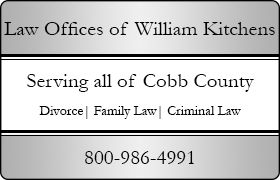Powder Springs Criminal Lawyer, Georgia
Sponsored Law Firm
-
 x
x

Click For More Info:
-
The Law Office of William Kitchens
5855 Jimmy Carter Blvd. Suite 155 Norcross, GA 30071 » view mapDivorce & Family Law, Criminal Proven Results. Call Today.
William Kitchens has a proven history of serving Atlanta for two decades, specializing in both Criminal and Family Law. He can help during this difficult time.
800-986-4991  William Kitchens Norcross, GA
William Kitchens Norcross, GAAttorney At Law - GA, 1997
U. of Georgia School of Law, J.D. - 1997
 Frequently Asked Questions
Frequently Asked QuestionsClick here to learn more about Attorney Kitchens.
 Contact UsEmail or Call 24/7
Contact UsEmail or Call 24/7Call today for your initial consultation.
Anthony A. Hallmark
Entertainment, Family Law, Divorce & Family Law, Criminal
Status: In Good Standing
Douglas Kent Shelton
Divorce & Family Law, Criminal, Estate, Power of Attorney
Status: In Good Standing Licensed: 32 Years
Loretta Ann Smith
Military & Veterans Appeals, Labor Law, Family Law, Criminal
Status: In Good Standing Licensed: 18 Years

 Frequently Asked Questions
Frequently Asked Questions Contact UsEmail or Call 24/7
Contact UsEmail or Call 24/7
